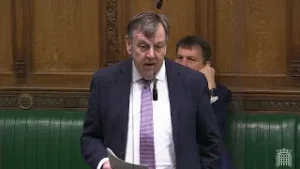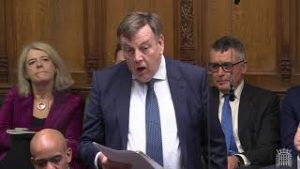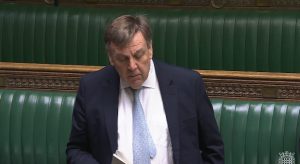John Whittingdale The Minister of State, Department for Culture, Media and Sport, Minister of State (Department for Science, Innovation and Technology)
Clause 10 inserts proposed new section 278A into the Communications Act 2003. This will establish a mechanism for the creation of additional quotas for audio-visual content that has not been made available by one or more providers of
“licensed public service channels…to the extent that is appropriate.”
That is achieved by empowering the Secretary of State in new subsection (1) to specify
“by regulations…a description of qualifying audiovisual content”.
This will include both specifying the type of content—for example, a particular type or genre—and how that content is to be delivered.
The power is essentially a backstop should there be a type of content that is neglected in the fulfilment of the public service remit, as we discussed. It will only be used as an exception rather than by rule. We believe that a modernised public service remit, deliverable across a wide range of services, will in most cases be sufficient to ensure a range of high-quality public service broadcasting. The power will ensure that the legislation is future-proofed against changes in how content is delivered—for example, by allowing the Secretary of State to require that certain content be delivered on certain services.
The bar for imposing additional quotas of this kind will be high. The more specific the proposed quota, the higher it should be. Before making a recommendation under these sections to introduce regulation, Ofcom will be required to consult members of the public, affected licensed public service channels and any other providers of television or on-demand programmed services. Any regulations made under the new section will be subject to the draft affirmative mechanism.
Clause 11 inserts proposed new section 278B into the 2003 Act, which introduces some important definitions that are relied on by other clauses. It defines “qualifying audiovisual content” and what it is to make available a “qualifying audiovisual service”. It also specifies that this must be free of charge where it has been included in an on-demand programmed service, and it must have been included, as we said, for at least 30 days. These important definitions are needed for the functioning of the Bill.
Government amendment 2 is a technical amendment to clause 11, clarifying that, where qualifying audio-visual content has been made available through services provided by persons associated with the licensed PSB, arrangements must be in place between the PSB and that person. That corrects a theoretical anomaly between section 264, as amended, and the proposed new section, which could have resulted in quota content not counting towards a PSB’s remit.
Clause 12 makes further provisions about how quotas can be fulfilled. It inserts proposed new section 278C into the 2003 Act, requiring the Secretary of State to make provision, either directly or through Ofcom, for the appropriate treatment of material that is made available by public service broadcasters multiple times. It can apply whether the repeats are on the same service, as with the traditional repeat, or across multiple services. We believe that this complex issue needs more detailed treatment. Before making any regulations in this area, the Secretary of State must consult Ofcom.
In respect of original and regional productions, and other additional quota conditions that may be determined, clause 12 allows for the treatment of repeats to be determined not by the Secretary of State but by Ofcom. Given that Ofcom is responsible for setting the level of those quotas, in our view it makes sense for it to continue to determine the treatment of repeats.
Turning to clause 13, section 285 of the 2003 Act requires that the provider of each licensed public service channel draws up a code of practice that they will apply when commissioning independent productions for that channel. Those codes of practice must be consistent with guidance issued by Ofcom, and this gives rise to a system of regulation known as the terms of trade regime. The purpose of the codes, and indeed, the terms of trade regime as a whole, is to ensure that broadcasters work fairly with independent production companies and do not take advantage of their dominant market position.
Clause 13 makes amendments to section 285 of the 2003 Act to extend the scope of the codes of practice to cover independent productions commissioned for other audio-visual services—for example, programming that is put on on-demand programme services—should the PSB wish to count those programmes as part of its independent productions quota. Subsection (3) is complementary, in mandating Ofcom to issue guidance with a view to ensuring that the PSB provides the person who is being commissioned with information about the application of the code. These essential provisions support the modernisation of our PSB system, and I commend Government amendment 2 and clauses 10 to 13 to the Committee.
TO READ THE WHOLE DEBATE PLEASE VISIT THIS LINK:
https://www.theyworkforyou.com/pbc/2023-24/Media_Bill/02-0_2023-12-05a.48.4?s=speaker%3A10632#g48.7


